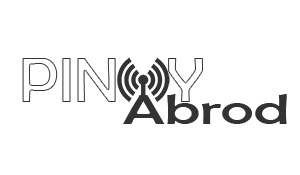Reports about the alleged brainwashing of students by activist groups reminded me of Paulo Freire’s Pedagogy of the Oppressed, a popular text elucidating the role of education in social change. The book criticizes the dominant teaching methods which are undemocratic while proposing an alternative concept of pedagogy. It has become a valuable handbook for social workers and educators who are committed to ending inequality in society. It can be a guide to improve teaching, and more importantly, make teaching a more democratic practice. It can lead to better interaction with students by motivating the latter to speak out and share their stories which can enhance learning for both the students and teacher. The book inspires the teacher to respect the knowledge possessed by individuals and enjoins the oppressed to be part of the struggle for freedom. It encourages teachers not to be tools of oppression in an exploitative society.
A society such as ours has sanctioned a culture of passivity. But a ‘pedagogy of the oppressed’ can help the downtrodden to articulate their suffering and begin to understand social reality and how to change their present condition. This kind of pedagogy advances the cause of humanity by liberating not just the oppressed but also the oppressor.
There should be reflection on the part of the oppressed and oppressor about their roles in society. One way to achieve this is through ‘dialogic education’. People should start engaging in sincere dialogue. However, the vocabulary of the oppressed must be articulated and used in the learning process. Otherwise, they will remain alienated in the struggle for genuine freedom. Through dialogue, the oppressed can express and use their own language. The oppressed must learn and internalize how to liberate themselves from different forms of oppression. A concrete alternative is the pursuit of action guided by informed analysis or the fusion of theory and practice which is also known as praxis. This allows the people to give importance to their daily activities since it is integrated and highlighted in the production of knowledge. Through this effort, the oppressor is deprived of the means to privilege certain forms and types of elite knowledge.
Freire criticized the ‘banking concept’ of education as an instrument of oppression. This refers to the predominant pedagogic method which privileges the power and knowledge possessed by the teacher. Students are viewed as ‘empty’ individuals without any relevant stories or knowledge to share. Teachers ‘deposit’ knowledge to students by monopolizing the teaching process inside the classroom. Freire argued that every individual, teacher or student, has a ‘cultural capital’ or a particular worldview which can be shared with the rest of the community. But the banking method of education downplays the ability of individuals, especially the oppressed, to articulate their beliefs, culture, knowledge and life stories. This method presumes that there are individuals who can impose their thinking since they are knowledgeable of the things that are essential in life on one hand; and there are groups of ignorant people who must remain docile and inarticulate since they possess no knowledge of the world on the other.
Through dialogue, reflection, questioning, action, and especially through praxis, this type of education can be an instrument of liberation. When individuals begin to realize their oppression, they are motivated to act. And when they begin to use the language that is relevant to their lives, it gives them the power to dare and act decisively.
Reading Freire enhanced our understanding of the Maoist concept of ‘mass line’ and the slogan ‘learn from the masses’. Applied to our propaganda and education work, we embark on conscientization activities anchored on the daily struggles of the people in the grassroots. The ‘pedagogy of the oppressed’ is grasped through political organizing. It is through this process where individuals are able to identify, unlearn, and shatter the prevailing dogmas, myths, and jargons which often lead to a radical awakening about what must be done in light of the structural inequalities in society. Guided by a different type of political education, the individual can choose to become part of a collective action targeting the destruction of an unjust social order. The vision of a new future is realized through mass work, immersion in the mass movement, and direct democratic engagement in the streets and other political battlefields. It is a moral crusade requiring the remolding of the self, and political action with immediate and lasting consequences in society. And the ‘influencers’ here are not the armchair intellectuals but the ‘organic intellectuals’ represented by peasant activists, union leaders, urban poor organizers, and human rights defenders who are laying the foundations of a better world.
If activists reject the accusation that our political work is tantamount to brainwashing, it is because we are consciously espousing a democratic kind of pedagogy. We are ready to correct methods of teaching and organizing if our weaknesses are clearly pointed out. But the prominent critics of activism not only fail to substantiate their allegations, but they also represent the most brutal and conservative forces in society which abhor progressive politics and dismiss national democratic agitation as criminal extremism.
This is an opportunity for activists to make a deeper reflection on our work by affirming our adherence to democracy and people empowerment and renouncing tendencies that alienate us from the public. But this is also a good time to offer an open mind about what activism really means in our society, its impact on our history and politics, and understanding why the reactionary forces and their class apologists will celebrate if activism is continually demonized, criminalized, and rendered unpopular.
Mong Palatino is a Filipino activist and former legislator. He is the chairperson of Bagong Alyansang Makabayan Metro Manila. Email: [email protected]
The post Activism and brainwashing: Lessons from Paulo Freire appeared first on Bulatlat.



